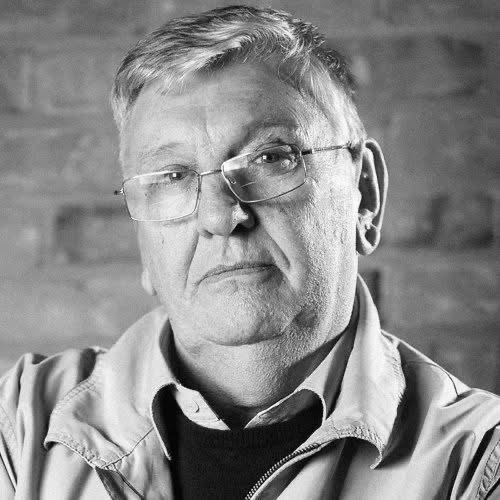
Oliver Rackham Obituary
Cambridge, England, United Kingdom
October 17, 1939 - February 12, 2015

Oliver Rackham Obituary
Oct 17, 1939 - Feb 12, 2015
Plant Pathologist and Woodland Archaeologist
“AND there is a wood called Heyle.” Strange words to spark an epiphany; but it was those, written in crabbed Latin in the huge Coucher Book of Ely, an episcopal survey from 1251, that told Oliver Rackham the way he had to go. He realised then that the wood he had just helped to save from destruction in 1962, Hayley Wood in Cambridgeshire, had been there for at least 700 years. It was smaller than before, but still had its ancient circular shape and its mix of oak, ash and hazel trees. Probably as before, it boasted badger setts in the banks, clumps of rare oxlips in the spring and ragged robin in summer; and the strangely ordered ranks of meadowsweet and bluebells still followed lines of medieval ridge-and-furrow made with the plough.
The saving of Hayley Wood—a lifetime project for this proud East Anglian, though woodland everywhere became his passion—was not just a matter of preserving the plants that were there. The wood had to be managed again, as it had been for centuries, by coppicing or pollarding the trees on regular cycles for fencing, wheels and furniture, thus encouraging the underwood, and by leaving some trees to grow tall for building timber. Englishmen were once close to their woods and trees, tracing parish boundaries from holly to pear to willow, incorporating wood-words (ley, hurst and holt) into their place-names and devising cruck-framed cottages to suit the crooked boughs of the black poplar. To know such things gave both beauty and meaning to the landscape, as Mr Rackham spent his life proving.
At Cambridge, where he had studied plant pathology and became, successively, a fellow and master of Corpus, he was the shyly smiling wild man of the woods, in shorts and wellingtons, or in a dinner jacket teamed with sandals and orange socks, and with a lengthening and whitening beard. In his Cambridge rooms piles of books vied with specimens, to be dissected at the kitchen sink, and bits of beams would be pulled exultantly from his rucksack to show medieval lichen still on them.
He also hoped to explode certain myths, and did so in a series of clear, detailed, popular books. The English landscape had never been covered in vast woods, and had not been changed, except locally, by early 19th-century enclosure; most of the field-and-wood patterns of today were laid down by 1200. Similarly the Cretan landscape, which he also loved, was not degraded since ancient times, but had always had a cover of savannah and maquis because the climate was so dry.
Britain’s woods, he went on, had not been destroyed by the wooden-ship navy or by industry, but by the arrival of cheap bulk coal and then of imported timber, which stopped men managing them properly. More recently, housing or motorways had hardly added damage; instead woods had been decimated, in the “locust years” of 1950-75, by farming, plantation economics and over-browsing by invasive deer.
Mr Rackham’s solution for deer was brutally simple. “Eat Bambi!” he advised; or put up a three-strand barbed-wire fence to keep him out. The Forestry Commission was tougher to fight, but he took it on, lamenting not just the regimented planting of conifers for building but the dreary new broadleaf woods, where all the trees were the same age and too close together, blocking light. Ten thousand young oaks, he wrote, could not replace one 500-year-old, which made an entire ecosystem for insects, lichens, bats and birds. Trees were not items of commerce, like tins of paint. They were actors in history, as he had realised from the age of ten, exploring bomb-sites in Norwich to find dogged new seedlings he already knew as aspen and sycamore. Later he lost his bachelor heart to the beautiful small-leaved lime. Trees were wildlife with their own agendas, as much as any animal in the wood.
By 1990, to his surprise and mostly to his credit, the tide had turned. Though authorities and the public still made ignorant mistakes, and deer were as hungry as ever, trees and woods were generally, even extravagantly, loved in Britain; more and more woodland was held in trusts; and good management was slowly reviving. He would even do a bit of coppicing himself, when given an axe and half a chance—though he never needed an excuse, as friends found, to linger long in woods.
The hollow pollard:
Danger now came mostly from a different quarter. Again, he raised the alarm. Trees were being too cavalierly shipped round the world, taking their pathogens with them. As a result, England’s elms had already almost disappeared, and horse chestnuts and alders were weeping blood and dying. The problem was global, for he had seen in Ohio that Dutch elm disease had also ravaged America, and chestnut trees had vanished. His last book, “The Ash Tree”, was written in response to the outbreak of the Chalara fungus; but a greater threat loomed from America’s emerald ash borer which, having killed so many trees there, must one day land in England.
It worried him that there were not more plant pathologists to keep watch. Like John Clare’s “pulpit trees”, ancient hollow pollards in the fields of East Anglia, he seemed to preach his sermons to the air. Yet he hoped that, like them, he would suddenly prove useful when the next storm broke, and the hard rain fell.




Guestbook